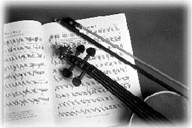|
阅读理解
It was Satuday.As always, it was the one, for “Six days, shall you labar and all your work”was taken senously back then, Outside, Father and Mr.Patnce ncxt door were bxsy conny tcood lnside the wiel users Mother ane Mrs.Patrick were enpted in seeng cleaning
Somehow the boy s had shipped away to the back lot with their kites.Now, evet at the reis of having Brother caught to beat carpets.they had sent him to the kitchen tox exsre xding, sccmed there was no limt to the heights to which kites would fly today
My mothe looked at the sitting room, its furndign disordered for a tborough sweeting.Again she cast a look toward the window “Come on, girls! Let's take sing to the beer and theem a tutue”
On the way we met Mrs.Patrick, Ianghing guiltily as if she wrig doing woeig wrong
The never was such a day for flying kites! We played all our frsh string into the boys' kites up higher and higher, We could hardly distingwish the orang-coloced sports of the kites Now and then we slowly pullked one kite back, watching it dancing upo and down in the wind and finally bringing it down to earth, just for the joy of sending yt up again
Even out fathers dropped their tools and joined us.Out mothers look their turn, laughing like schoolgirls Ithink we were all beside ourselves Parents forgx their daty and their dignity; children for everyday fights and little jealousies."Perhaps it's like this in the some of heafer,"I thought confusedly.
It we growing dark before we all walked sleepily back to the housew.Isuppose we had some chean and orderly enough.The strange thing was, we didn't mention that ady afterward Ifelt a little embarrasse.Surely none of the of the others had been as exceted as I Ikxked the memory up in that deepest part of me where we keep “the things that cannot be and yet they are”
The years went on, then one day Iwas hurrying about my kitchen in a city apartment, trying to get some work out of the way while my three-year-old, sisrently cried her desire to go park, see duck
“I can't go!”I said.”“I have this angt and when I'm through I'll be too rired to walk that far
My mother, who was visiting us, go up from the peas she was shelling It's a wllderful day, she offered, really warm, yet there's a fine breeu.Do you remimber that day we flew kites?
I stoppoed in my dash between store and sink.The locked door flew open and with it a rush of memorese Come on, I told my little girl You're right, it's too good d day to miss.
Another decade passed, We were in the aftennath(余波)of a great war, All evening we had been asking our returned soldier, the youngest Patrick Boy, about his experiences as a prisone war, He has ked freely, but now for a long time he had been silent, What was he thinking of-what dark and horrible things?
"Sany!"A smile shpped out frow his jips."Do you remem-no, of course you wouldn't make the impression on you as it did on me.”
I hardly dared speak,”Remrmber what?
“I used to think of that day a lot in POW camo(战俘营),when things weren's too good, DO you remember the we flew the kites?
| 
